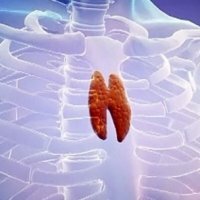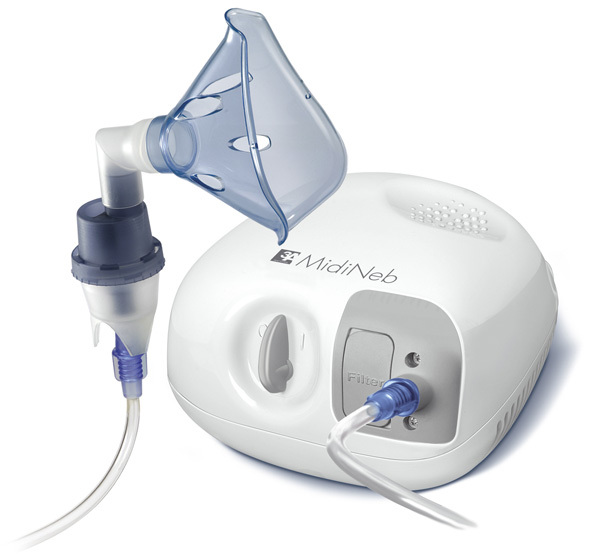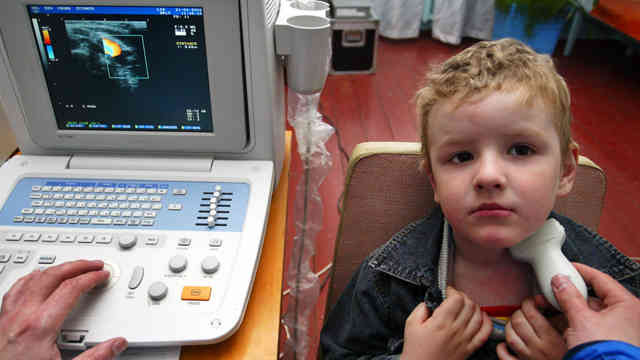Thymus gland in a child

Thymus, or thymus gland is one of the main organs of the immune system, but in addition it is also an internal secretion gland. The thymus gland, thus, is a kind of a link between the immune, that is, the protective and endocrine, otherwise hormonal, body system.
Thymus performs three basic functions to maintain normal human life: immunoregulatory, endocrine and lymphopoietic. The last function is to produce lymphocytes. In the thymus, the formation and development of T cells of the human immune system takes place. In simpler terms, the thymus is designed to destroy autoaggressive immune cells that attack healthy cells of their own organism. T-cells select and destroy parasitic cells even during their ripening. In addition, the thymus provides filtration of blood and lymph that flows through it. The appearance of any irregularities in the work of this body leads to the development of diseases - oncological or autoimmune, and the person becomes sensitive to infectious diseases.
The thymus is located in the upper region of the thorax. The formation of this organ occurs on the sixth week of fetal development. The size of the thymus gland in children considerably exceeds the size of the thymus of an adult. The first few days after the birth, the thymus gland produces white blood cells called lymphocytes. The thymus gland grows to fifteen years, and then the thymus begins to develop as if in the opposite direction. As a result, there comes such a moment( as a rule, it happens in old age) that fat and connective tissues replace glandular tissues of the thymus gland. It is this process that explains why older people are more likely to suffer from oncological and autoimmune diseases.
If the thymus has significantly increased in size, then this is reason to be alert, because it means that there are some violations in the gland's work. Specialists in this field for a long time argued about whether a small increase in the size of this organ pathology. As a result, the doctors agreed that if there are no obvious signs of the disease, and slight changes in the size of the thymus are visible only on ultrasound, there are no reasons for concern, this is considered the norm.
If a newly born child or a child under the age of ten has an increase in the size of the thymus gland, the child should be examined immediately. The condition, when the size of the thymus is increased in children, is called thymomegaly. Experts have not yet clarified the true nature of this disease. Children who have symptoms of this disease are identified as a separate risk group. Such children are much more likely to get sick, because they are more sensitive to viral, infectious and autoimmune diseases. In this case thymomegaly can be acquired or congenital and include a complex of diseases.
That's why when you have any symptoms of thymus disorders, it's important to immediately consult a specialist. The doctor must prescribe an ultrasound and radiographic examination to make an accurate diagnosis.
For preventive purposes, children should be more out in the open air, have a balanced, healthy and vitaminized diet. Good effect is provided by outdoor games. Of course, after high physical activity, the child must fully rest. If a child is diagnosed with a syndrome increasing the thymus, then it should be observed by a specialist before he is three years old. In addition, this child should be protected from infections.
Vaccination is carried out according to the calendar, in normal mode. The main thing is that the child does not get sick before and after the vaccination.
Therapy for adults and children is similar. The specialist prescribes treatment taking into account the individual characteristics of the body, while the therapy consists of taking both medicinal medicines and herbal medicines. Observance of the recommendations will help to get rid of the disease as soon as possible.



